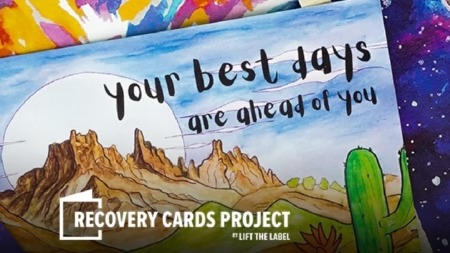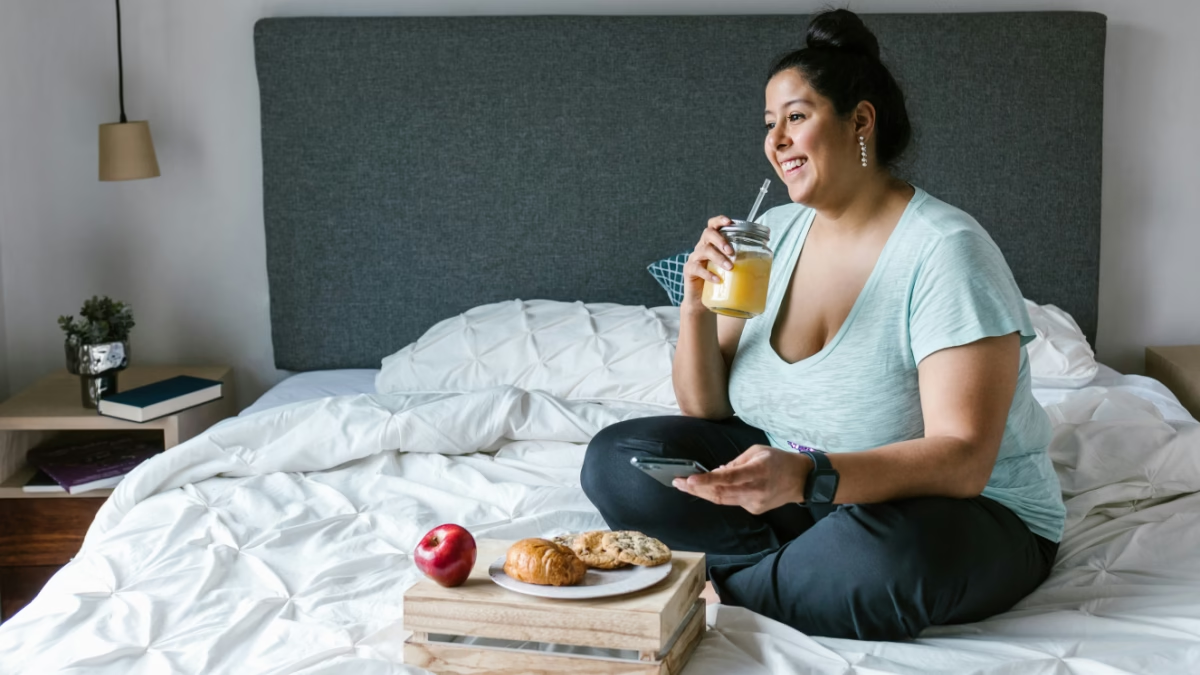
There’s a version of recovery that looks very impressive from the outside. Structured. Consistent. Clipped and polished. The kind that wakes early, drinks water with lemon, says all the affirmations, attends all the meetings, makes green smoothies, journals by candlelight. It is a recovery that can be photographed. Tidy. Celebrated. Marketable.
And underneath it, I often find a very old fear.
Control, posing as healing.
It’s easy to mistake one for the other. Our culture rewards control so thoroughly that it takes some time to even notice how much of our so-called wellness is really just surveillance. We swap wine for meal plans. We trade chaos for calorie counting. We quit drinking, but pick up intermittent fasting. We stop self-destructing and start self-managing. Hard.
And people praise it. They call it “taking care of yourself.” They call it “being committed.” But when care starts to feel like compliance, and when commitment feels like a performance you cannot opt out of, that’s not healing. That’s a new kind of prison.
I know this because I’ve been there. And I’ve worked with clients who’ve been there too. People who got sober and then became terrified of anything that felt “out of control.” Especially their bodies. Especially their appetites. Especially their softness.
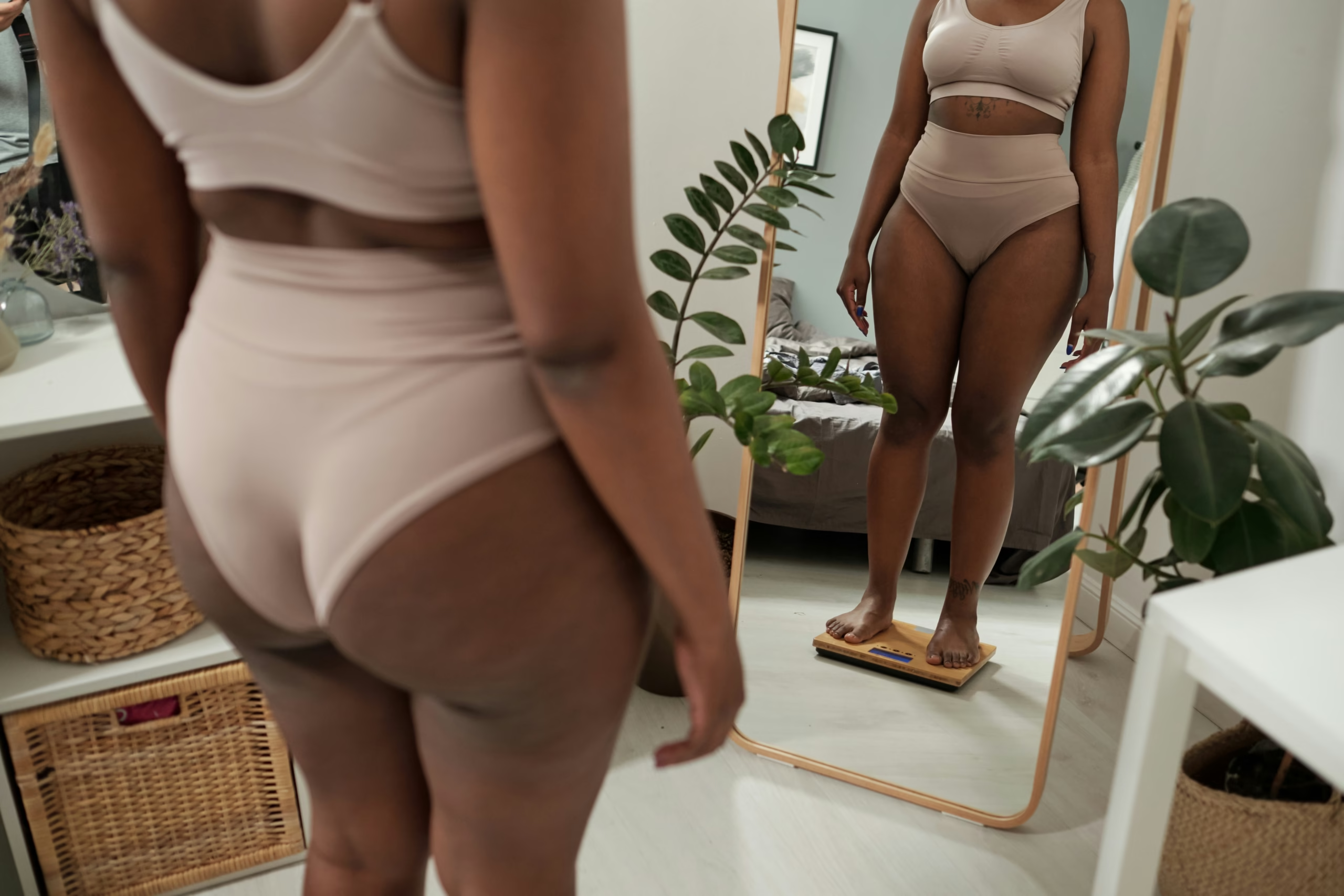
We’re told that recovery is about listening to ourselves. But what happens when the voice we hear the loudest is the one that tells us our worth is conditional? That our sobriety will be taken more seriously if we’re thin. That our insight will carry more weight if we have less of it on our bodies. That we will be safer, more employable, more lovable, if we just work harder to stay small.
This is not personal insecurity. This is fatphobia. And it is not just a collection of rude comments or aesthetic preferences. It is a system that punishes certain bodies and privileges others. It is embedded in our health care, our hiring practices, our clothing stores, our recovery programs. It lives in our language. It lives in our nervous systems. It lives in the silence of rooms that claim to welcome everyone but only celebrate a particular kind of wellness. The kind that can be measured in pounds lost, sizes dropped, appetites suppressed.
Fat people in recovery often carry two burdens: the work of staying sober and the constant pressure to prove they are also getting “healthier.” That word is slippery. It gets used as shorthand for everything from blood pressure to body size to moral character. We praise health as if it is a universal good and as if it means the same thing for everyone. As if it’s always possible. As if it’s always desirable. As if it’s neutral.
But the pursuit of health — and let’s be honest, we often mean thinness — is not neutral. It is shaped by race, class, ability, gender, trauma and access. And when we elevate it as the gold standard of recovery, we leave a lot of people behind. Especially fat people. Especially disabled people. Especially queer people. Especially people whose recovery includes learning to stop performing and start living. And while fat people bear the brunt of this system, the fear of being seen as “too much”, too soft, too loud, too slow, too emotional or too needy touches nearly everybody. Fatphobia doesn’t just harm fat folks. It conditions all of us to be afraid of taking up space.
Recovery is not about earning back your worth.
And yet so often, that’s exactly what it becomes.
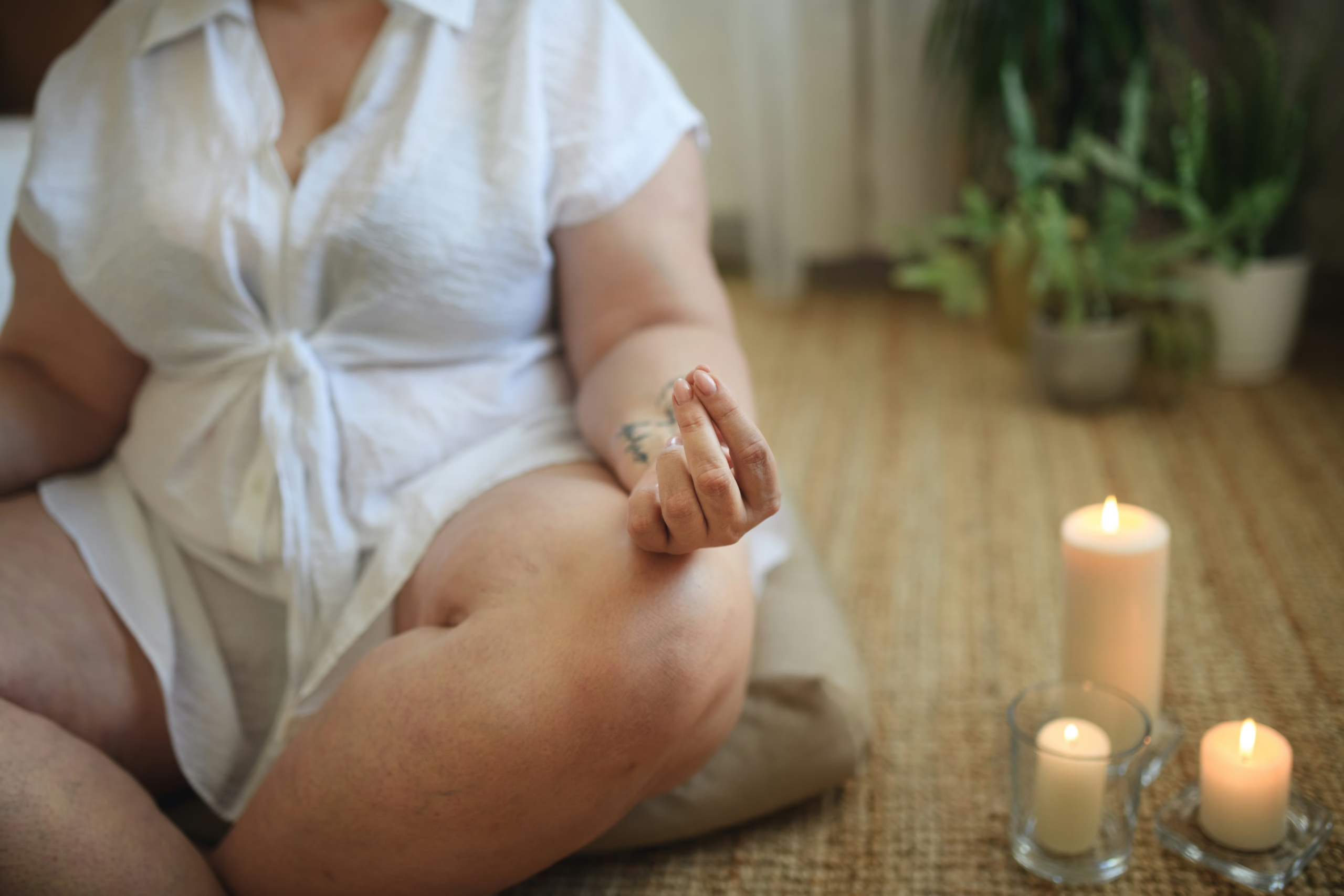
It becomes another space where fat folks are asked to prove they are trying. Asked to shrink in order to be seen. Asked to tolerate chairs that hurt, clothes that don’t fit, comments that go unchecked. Asked to be grateful just to be included as long as we keep our bodies quiet.
And when recovery becomes conditional, the cost is always embodiment.
But what if our recovery looks like wearing less clothing, not more? What if it looks like moving our bodies in pleasure, not punishment? What if it means resting more often and eating with joy and not needing a single justification for it?
I want to say clearly: reclamation of the body is recovery.
It is not a detour from it. It is not the indulgent part you get to once you’ve proved yourself. It is the very heart of it. Because we don’t just drink at our pain. We drink at our erasure. We drink at our hunger. We drink at the loneliness of being constantly told we take up too much space.
And when we begin to stop drinking, some of those voices don’t go quiet. They get louder. They tell us to behave. To be grateful. To be smaller, in every sense. They tell us to replace addiction with self-denial and call it growth.
But we were never meant to recover into the same systems that made us sick.
What if your recovery lets you feel full?
Full of desire. Full of laughter. Full of food that satisfies. Full of the sensation of being alive and not afraid to show it. What if your recovery includes joy that cannot be translated into a number on a scale? What if your recovery includes the kind of clothing that moves with your body instead of locking it in?
What if you are already whole, and recovery is not about controlling your life into submission, but allowing yourself to finally live it?
We need recovery that holds space for all bodies — soft, round, messy, glorious, queer, disabled, scarred, joyful bodies — without asking them to perform or explain or prove. We need recovery that allows for breath, and slowness, and pleasure. We need recovery that asks better questions than “How much have you changed?” We need recovery that asks, “How much more of yourself are you allowed to be now?”
This is the recovery of the body. It will not be neat. It will not be admired by everyone. It will not always be understood.
But it will be free.

THIRSTY FOR WONDER: at The Sober Curator, led by Anne Marie Cribben—a passionate recovery coach and spiritual companion based in Washington, DC—offers 1:1 coaching, spiritual guidance, and recovery support rooted in compassion and empowerment. As the creator of The Wellspring: A Celtic Recovery Journey, Anne Marie blends the Celtic calendar with sobriety, connecting participants to ancient wisdom and the rhythms of nature.
A fierce advocate for sobriety as liberation and self-love, she challenges the targeted marketing of alcohol to women and champions authentic, joyful living. Her work goes beyond addiction recovery, fostering a life of vibrancy, purpose, and connection.

WALK YOUR TALK: #FuckHeroinChic – a Flashback to 1997
WALK YOUR TALK 💫 Because the best thing you can wear is clarity, confidence, and a killer sense of style.

WALK YOUR TALK is The Sober Curator’s style destination for those redefining what it means to live vibrantly alcohol-free. From runway-ready ensembles to effortless everyday glam, we celebrate confidence, clarity, and the joy of dressing boldly without the pre-funk or party drinks.
More than a fashion column, Walk Your Talk highlights curated finds from our #ADDTOCART section, spotlights sober-owned small businesses, and showcases unique merch that makes your alcohol-free journey unapologetically chic. We proudly partner with the Break Free Foundation, bringing sobriety’s brilliance to the runway during New York Fashion Week and beyond.
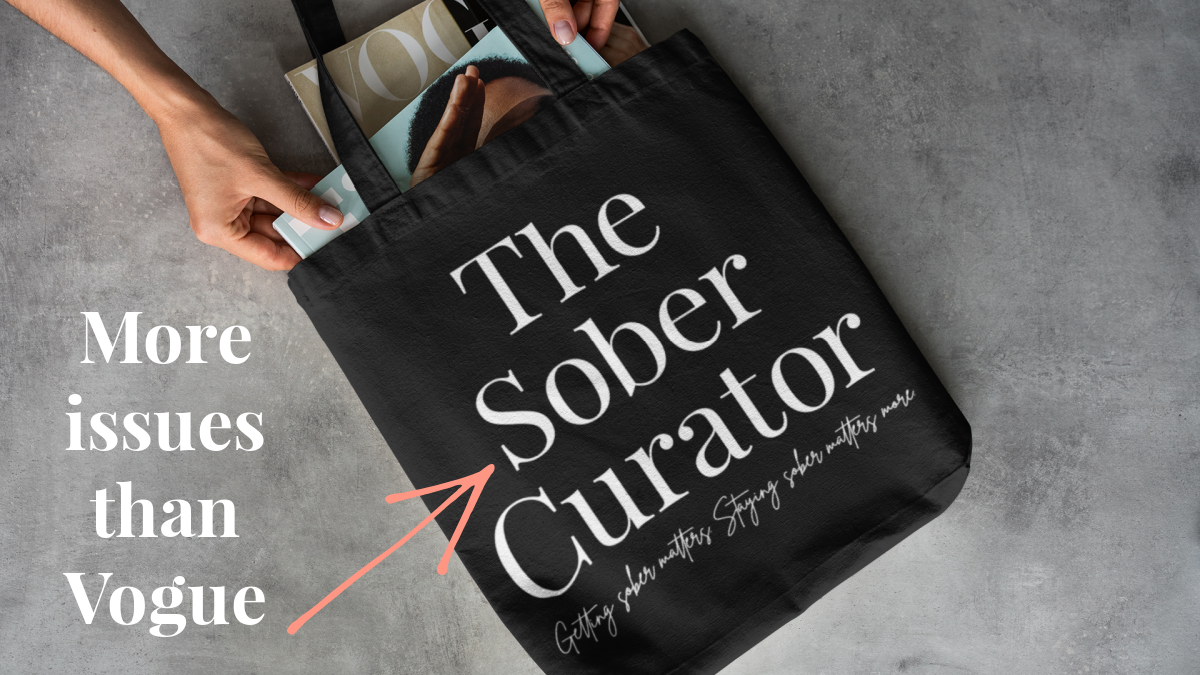
Resources Are Available
If you or someone you know is experiencing difficulties surrounding alcoholism, addiction, or mental illness, please reach out and ask for help. People everywhere can and want to help; you just have to know where to look. And continue to look until you find what works for you. Click here for a list of regional and national resources.





